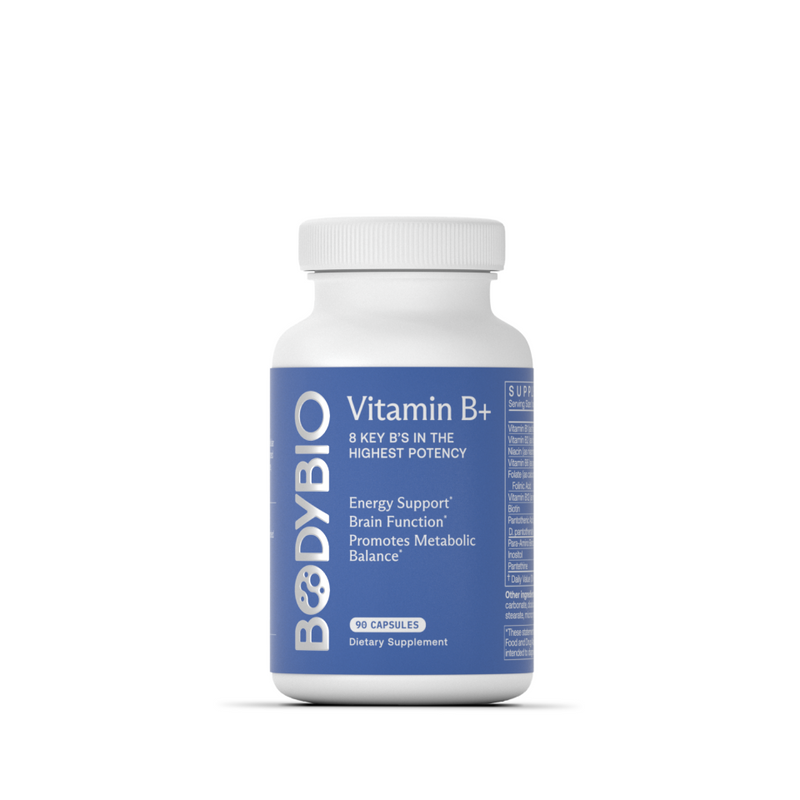Top 5 Self-Care Tips for Seasonal Affective Disorder
Authors:

Dr. Thomas Wnorowski
PhD, CNCC Research Director, BodyBio & Biomedical Nutritionist
Key Takeaways:
Key Points:
- SAD is more than just feeling blue — it’s a serious form of depression that significantly affects your day-to-day life.
- Through a comprehensive and holistic approach, you can take control, manage symptoms, and regain a sense of normality throughout the dark days of winter.
- We’ve covered five simple habits from mindful movement to supplements that you can start implementing today to help improve your overall well-being.
As the seasons change, many people notice not just shifts in the weather but also in their emotional well-being. Feelings of apathy, depression, and a sense of not quite feeling like yourself may start to creep in.
This condition, known as Seasonal Affective Disorder (SAD), is a type of major depression that typically affects people during the fall and winter.
While seeking professional help is important, developing strong self-care habits is also key to managing symptoms during this difficult time.
We’ve outlined five self-care strategies to help you improve your mood, increase your energy, sleep better, and feel more like yourself again during the winter months. But first, let’s understand SAD a little better.
Table of Contents:
What is Seasonal Affective Disorder?
As we’ve mentioned, SAD is a seasonal disorder, which means it’s symptomatic at certain times of the year and dormant or in remission during others. As a type of major depressive disorder, SAD can be managed with a combination of approaches that target its unique seasonal nature. Here are some SAD facts:
- SAD affects women more often than men, with studies showing that women are 60-80% more likely to develop the disorder.
- Young adults aged 18-30 are particularly vulnerable.
- Those living in regions far from the equator, where daylight is scarce during winter, are at a higher risk.
SAD is believed to be caused by the decrease in sunlight during the shorter days of fall and winter. This decrease can disrupt our internal biological clock, known as our circadian rhythm, leading to imbalances in sleep patterns and affecting the production of mood-regulating neurotransmitters like serotonin and melatonin.
Symptoms of SAD
If you experience Seasonal Affective Disorder, you may notice:
- Persistent feelings of sadness, depression, or emptiness
- Crying spells
- Anxiety and irritability
- Feeling tired all the time
- Change in sleep habits, such as excessive sleeping and daytime drowsiness
- Withdrawal from family, friends, or colleagues
- Cravings for carbohydrates and sugars
- Weight gain due to overeating
- Difficulty making decisions, focusing, or remembering details
- Loss of interest in activities previously enjoyed
- Suicidal thoughts or feelings
If you’re experiencing suicidal thoughts, reach out and contact the 988 lifeline.
5 Seasonal Affective Disorder Self-Care Tips
1. Mindful Movement
Mindful movement refers to any physical activity done with intention and awareness.
The focus is on your actions, your breath, and staying present in the moment. In other words, it’s the opposite of the mindless, automatic movement we often engage in throughout our typical day.
Research has shown that mindful movement practices such as yoga and tai chi can decrease depression symptoms and improve overall mood.
Examples of mindful movement include yoga, tai chi, Pilates, and even walking, as long as you stay present with your body and the world around you. As a bonus, these activities can often be done in a group or with friends — adding a social element can also help with SAD (more on this later).
2. Light Therapy
Light therapy might be one of the most well-known treatments for SAD, and for good reason!
Research shows that light therapy is as effective as antidepressants and cognitive behavioral therapy for managing depression, improving symptoms in 40% to 60% of people.
The theory goes that by mimicking natural sunlight, light therapy may help to regulate circadian rhythms, thereby increasing serotonin levels and regulating melatonin production. This can lead to improved mood, hormone regulation, and better sleep.
When using light therapy:
- The light box should emit light at an intensity of 10,000 lux, which is about 20 times brighter than your typical indoor lighting.
- The best time to use the light box is in the morning, and sessions generally last 20-30 minutes.
- Consistency is key, so it’s important to use your light box every day for best results.
3. Create a Positive Space
While the weather outdoors may be outside your control, your indoor surroundings are a different matter entirely. Here are a few ways to make your personal space more positive and comforting.
Color
Incorporating uplifting colors into your surroundings can improve your mood and brighten your outlook. Whether it’s through a couple of throw pillows or a scarf, a pop of color can help relieve some of the gloominess from your day. Shades of yellow and orange are especially known for their mood-lifting effects.
Music
The right kind of music can lift your spirits, make you smile, and reduce stress by lowering cortisol levels. Create a playlist of songs you find inspiring and listen to often. Maybe even dance a little? Up to you!
Aromatherapy
Did you know essential oils are a natural way to boost your mood?
Scents like lavender, peppermint, ginger, and bergamot can help improve your outlook. Try using them in a diffuser, nontoxic room spray, candle, or even with a professional massage.
4. Embrace Your Social Network
When it comes time to attend gatherings or spend time with family and friends, you may prefer to tuck yourself away from others and just be alone.
But this is actually the best time to lean into your real-life social network.
A healthy social network can act as a protective factor, helping to lower levels of depression and anxiety.
In fact, one of the best ways to build resilience and improve healthy coping mechanisms is to spend time with a positive and caring community.
Plan ahead and commit to keeping those engagements, even if you’d rather curl up on your couch. Here are a few ideas to get out and interact with others:
- Explore fun classes like cooking, art, or yoga.
- Volunteer for causes you’re passionate about.
- Plan regular meetups with loved ones — think coworking, coffee dates, movie marathons, or game nights.
5. Vitamins for Seasonal Depression
Vitamin D
During the winter months, reduced sun exposure can lead to low levels of vitamin D.
But how does this affect the body and, more importantly, SAD?
Vitamin D plays an important role in serotonin production and the regulation of circadian rhythms, with low levels contributing to SAD symptoms (such as fatigue and depressed mood).
Supplementing with vitamin D can help increase energy, stabilize circadian rhythms, and improve mood — all key factors in managing SAD.
Research has shown that patients with depression often see significant improvement in symptoms with vitamin D supplementation.
To support your well-being, consider taking a high-quality vitamin D supplement regularly, especially during the shorter, darker days of winter.
B Vitamins
If you’re looking to boost your energy, elevate your mood, and sharpen your mental resources, read on!
B vitamins are key to producing neurotransmitters like serotonin and dopamine, which play a major role in regulating mood, sleep, and cognitive function. These water-soluble vitamins help stabilize your mood and lower the risk of depression and anxiety. Plus, they’re essential for metabolizing carbohydrates, fats, and proteins, giving you the energy you need to power through your day.
Keep in mind that caffeine, alcohol, and refined sugars can deplete B vitamins, making it important to replenish them through a nutrient-dense diet and supplementation.
At BodyBio, our B+ supplement is a combination of B vitamins that work together to optimize your body’s natural processes. This carefully formulated blend helps ensure that you’re getting the right balance of these essential nutrients so you can enhance mood, support mental clarity, maintain steady energy levels, and promote overall well-being.*
Creating Your Wellness Routine
SAD can seriously impact your quality of life, but adopting supportive self-care practices can help improve your outlook, decrease symptoms, and give you back your energy so that you can keep doing what you love, no matter the season.
To make the most of your efforts, consider incorporating our B+ supplement into your daily routine to help you sustain the energy and positivity you need all season long.
Högberg, G., Gustafsson, S. A., Hällström, T., Gustafsson, T., Klawitter, B., & Petersson, M. (2012). Depressed adolescents in a case-series were low in vitamin D and depression was ameliorated by vitamin D supplementation. Acta paediatrica (Oslo, Norway: 1992), 101(7), 779–783. https://doi.org/10.1111/j.1651-2227.2012.02655.x
Ljungberg, T., Bondza, E., & Lethin, C. (2020). Evidence of the Importance of Dietary Habits Regarding Depressive Symptoms and Depression. International Journal of Environmental Research and Public Health, 17(5). https://doi.org/10.3390/ijerph17051616
Melrose, S. (2015). Seasonal Affective Disorder: An Overview of Assessment and Treatment Approaches. Depression Research and Treatment, 2015. https://doi.org/10.1155/2015/178564
Sánchez-Vidaña, D. I., Pui-Ching Ngai, S., He, W., Ka-Wing Chow, J., Wui-Man Lau, B., & Wing-Hong Tsang, H. (2017). The Effectiveness of Aromatherapy for Depressive Symptoms: A Systematic Review. Evidence-Based Complementary and Alternative Medicine : ECAM, 2017. https://doi.org/10.1155/2017/5869315
Sangle, P., Sandhu, O., Aftab, Z., Anthony, A. T., & Khan, S. (2020). Vitamin B12 Supplementation: Preventing Onset and Improving Prognosis of Depression. Cureus, 12(10). https://doi.org/10.7759/cureus.11169
Sani, N. A., Mohd Yusoff, S. S., Norhayati, M. N., & Zainudin, A. M. (2023). Tai Chi Exercise for Mental and Physical Well-Being in Patients with Depressive Symptoms: A Systematic Review and Meta-Analysis. International Journal of Environmental Research and Public Health, 20(4). https://doi.org/10.3390/ijerph20042828
Wickramaratne, P. J., Yangchen, T., Lepow, L., Patra, B. G., Glicksburg, B., Talati, A., Adekkanattu, P., Ryu, E., Biernacka, J. M., Charney, A., Mann, J. J., Pathak, J., Olfson, M., & Weissman, M. M. (2022). Social connectedness as a determinant of mental health: A scoping review. PLoS ONE, 17(10). https://doi.org/10.1371/journal.pone.0275004
Young, L. M., Pipingas, A., White, D. J., Gauci, S., & Scholey, A. (2019). A Systematic Review and Meta-Analysis of B Vitamin Supplementation on Depressive Symptoms, Anxiety, and Stress: Effects on Healthy and ‘At-Risk’ Individuals. Nutrients, 11(9). https://doi.org/10.3390/nu11092232

